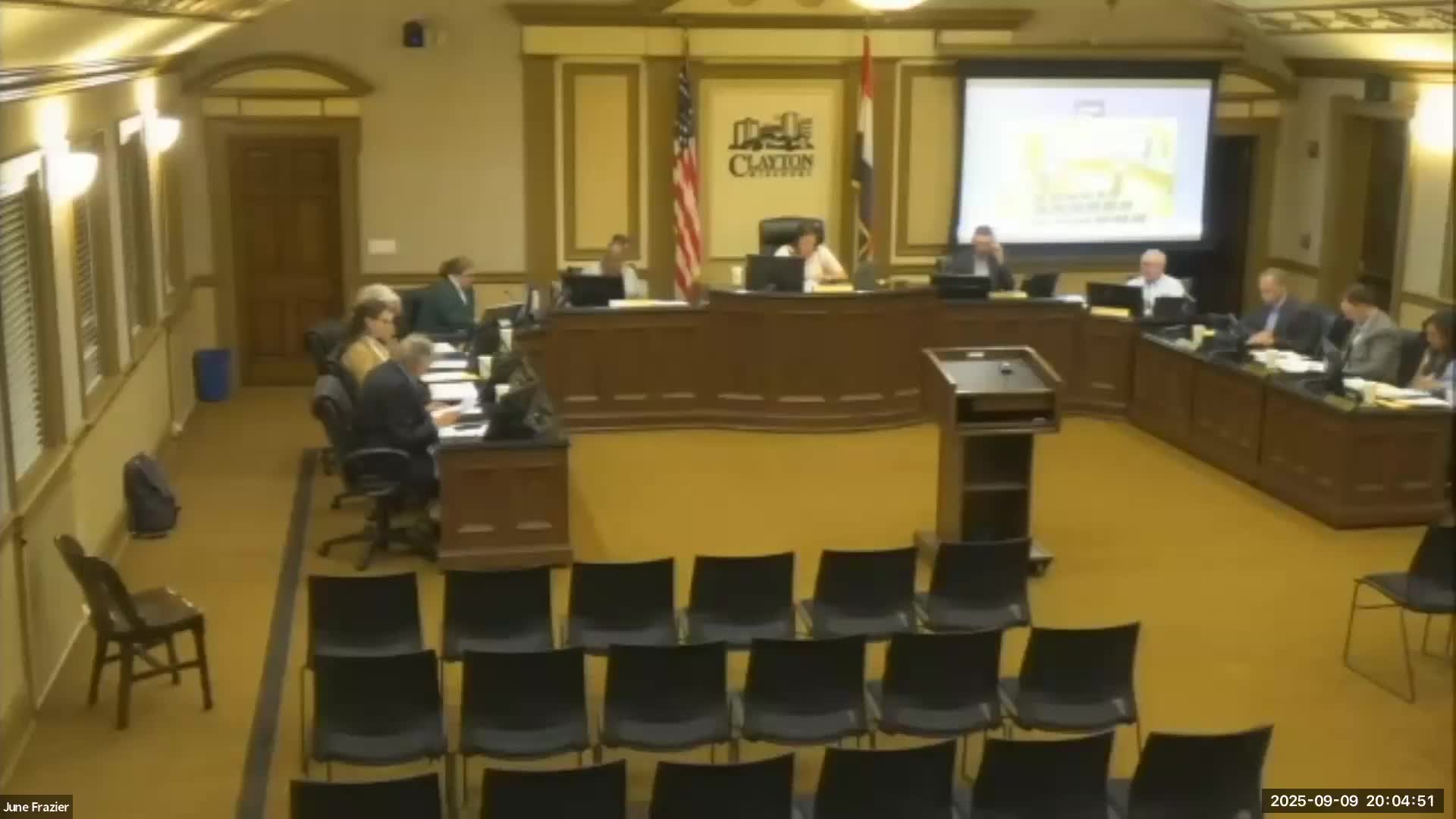Article not found
This article is no longer available. But don't worry—we've gathered other articles that discuss the same topic.
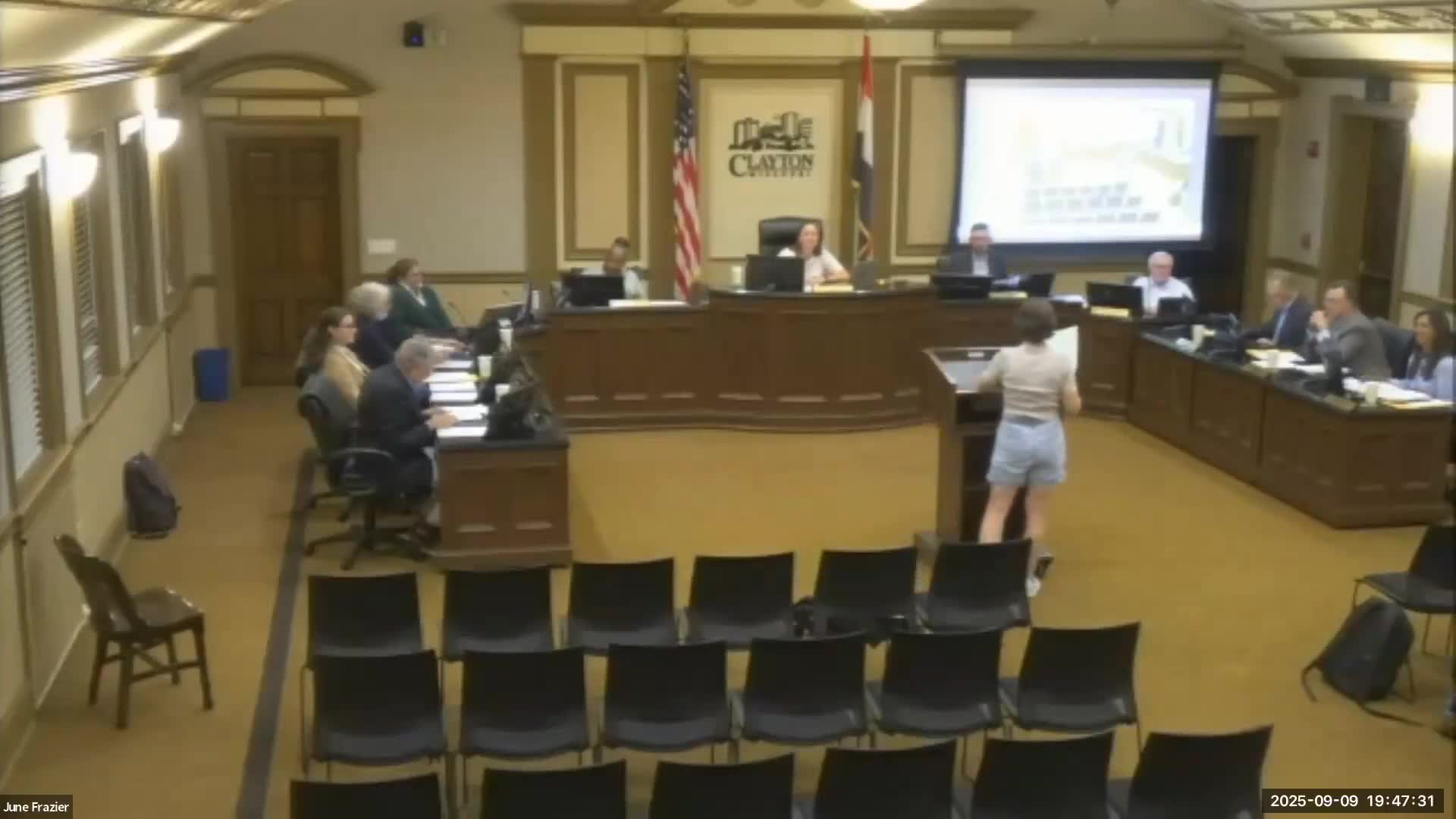
Resident questions Linden lighting project in budget; city staff say project addresses standards and circuit extension costs
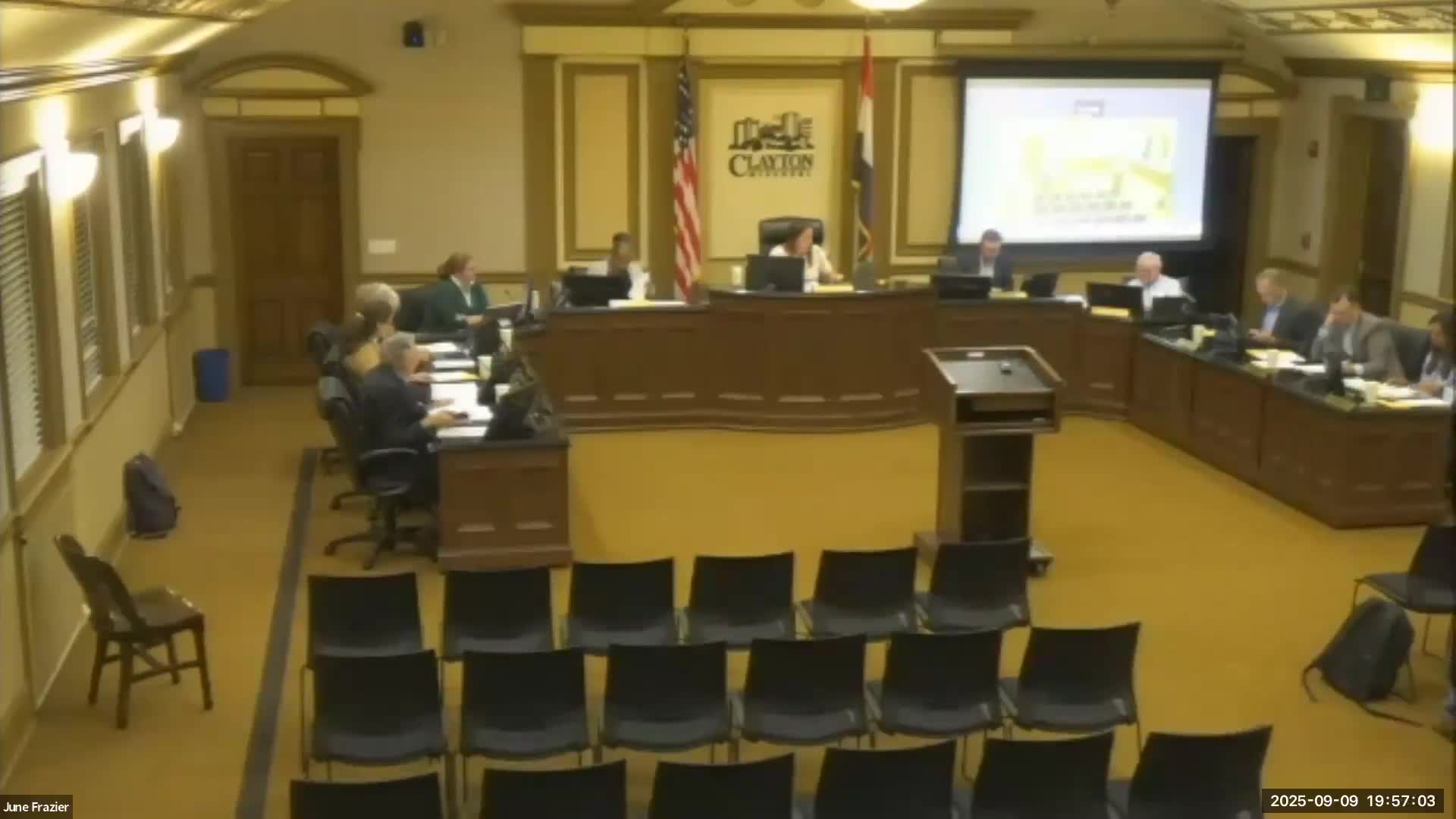
Clayton authorizes discharge of industrial revenue bonds and transfer to Centene; council approves ordinance
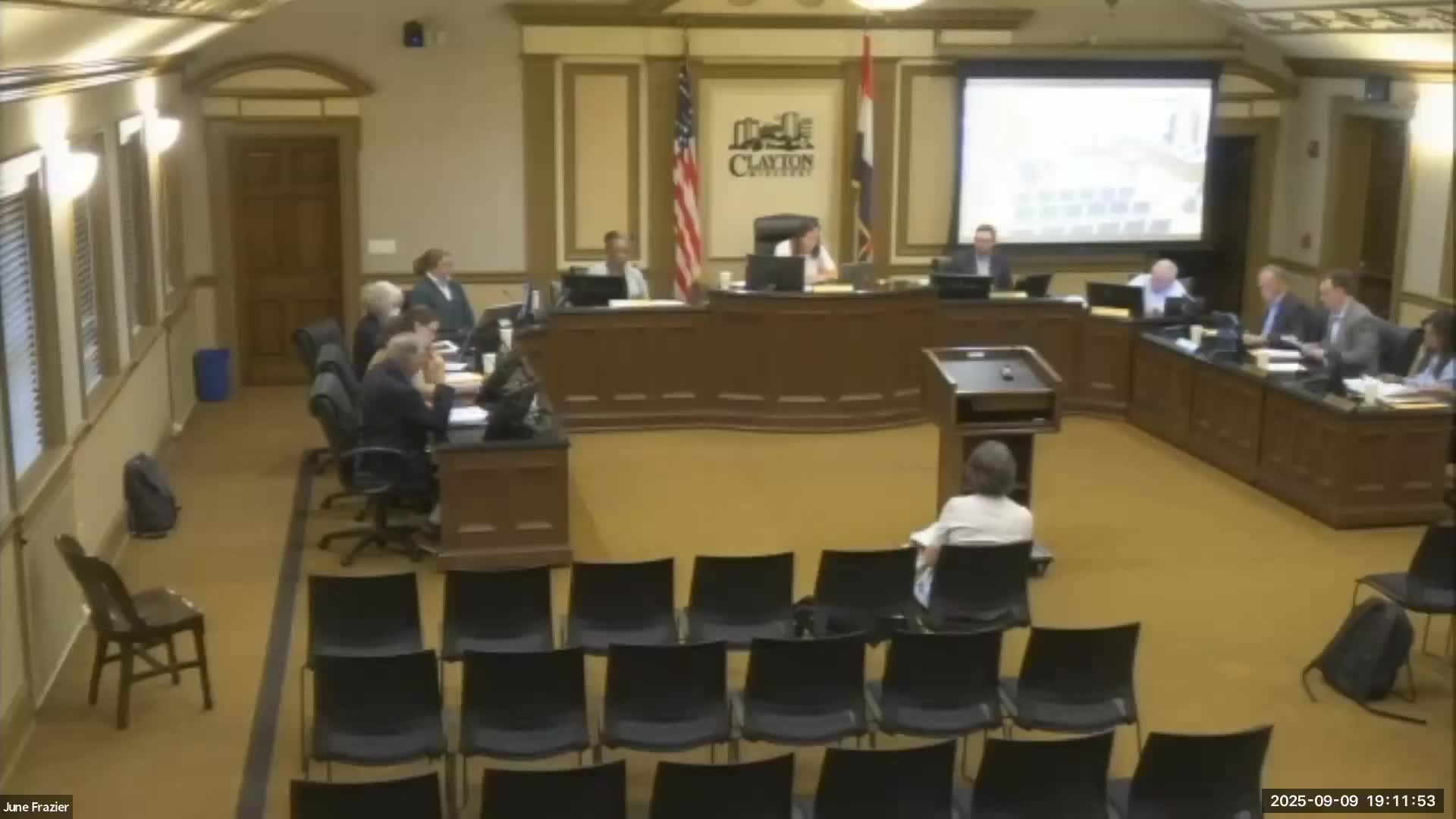
Clayton holds hearings, files first readings on 2025 property tax levies and 2026 budget amid tornado recovery
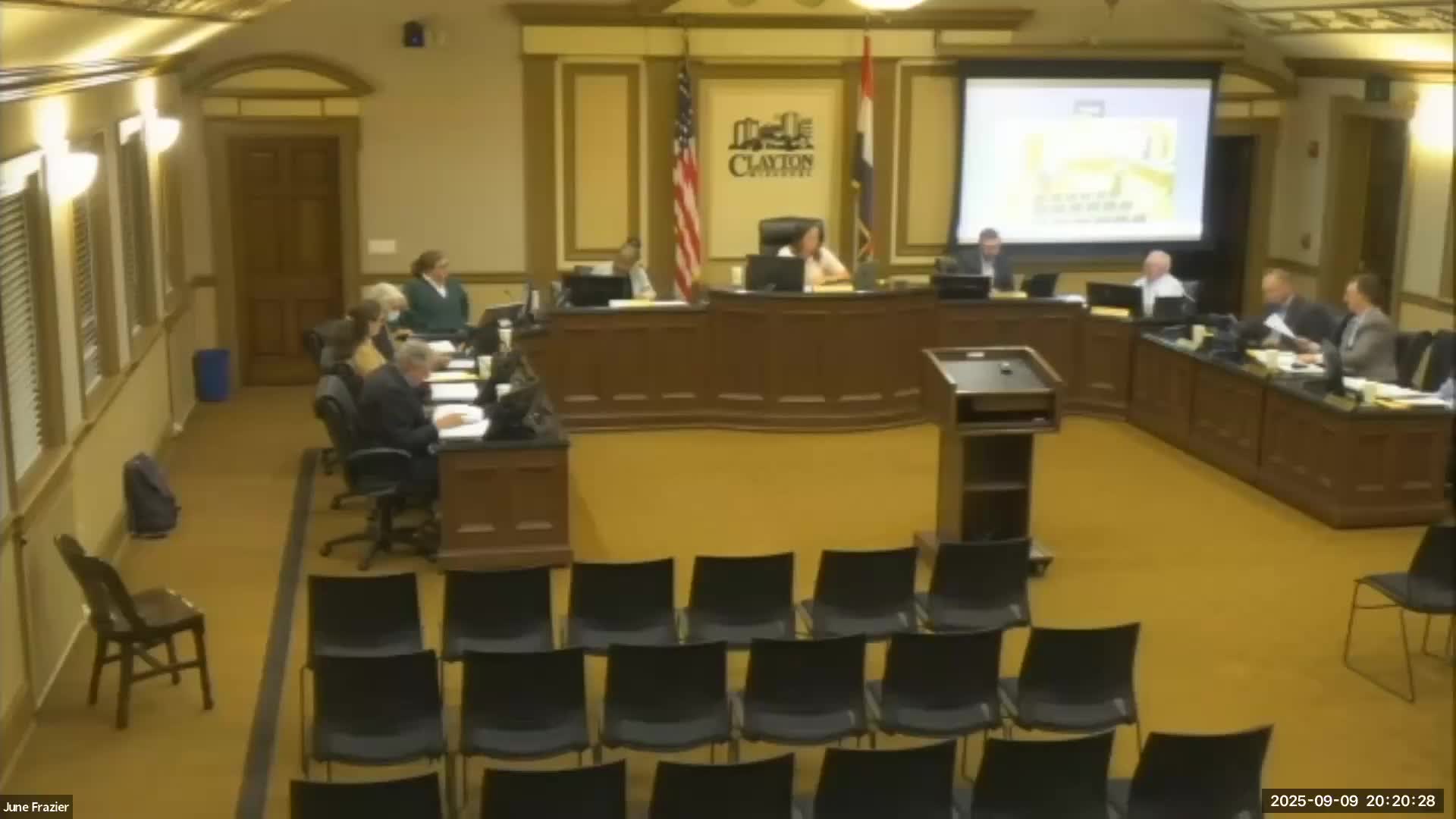
Board extends conditional use permit for Concordia Seminary for one year
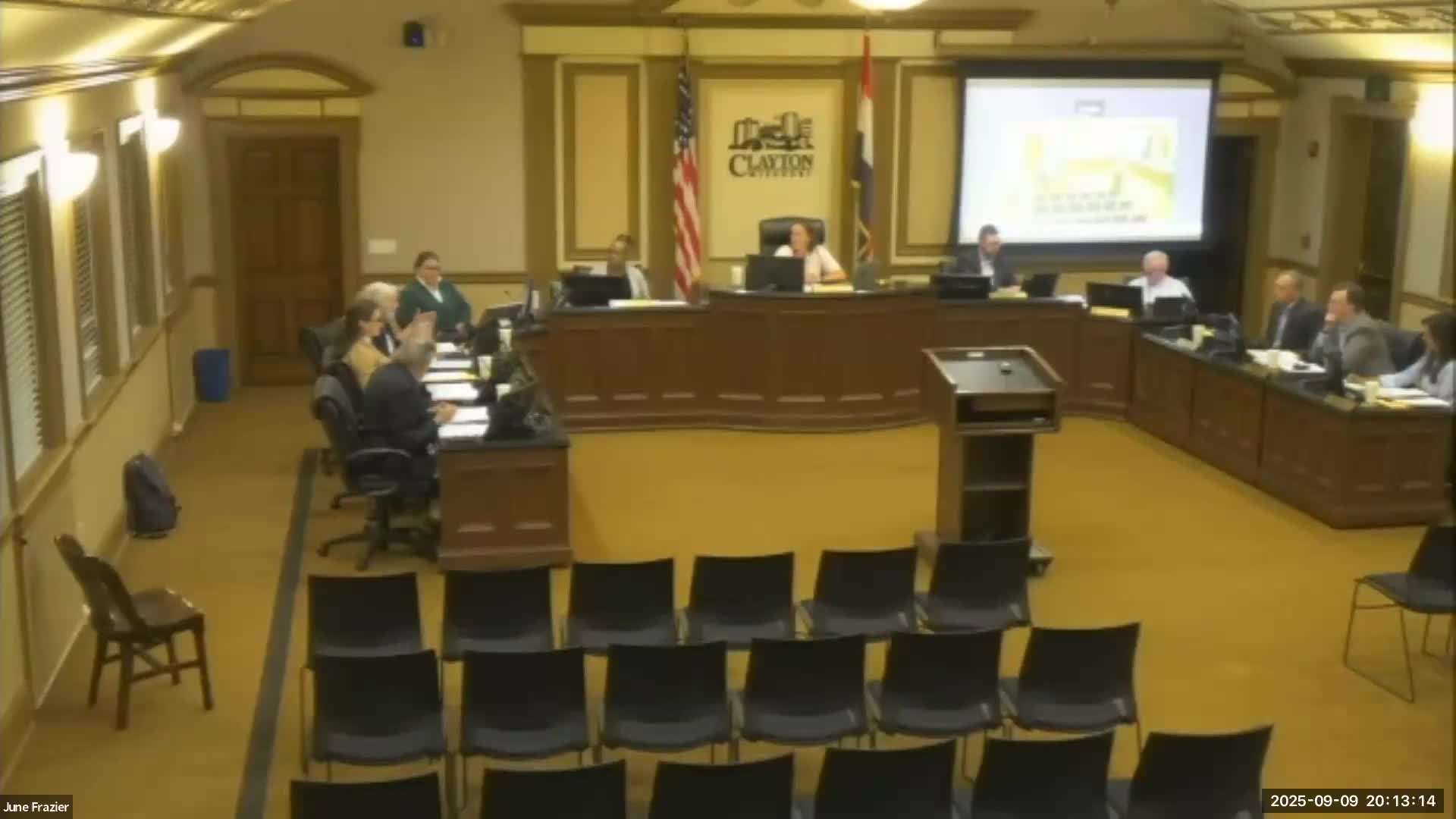
Clayton amends Hillcrest vacation ordinance nunc pro tunc to correct lot references
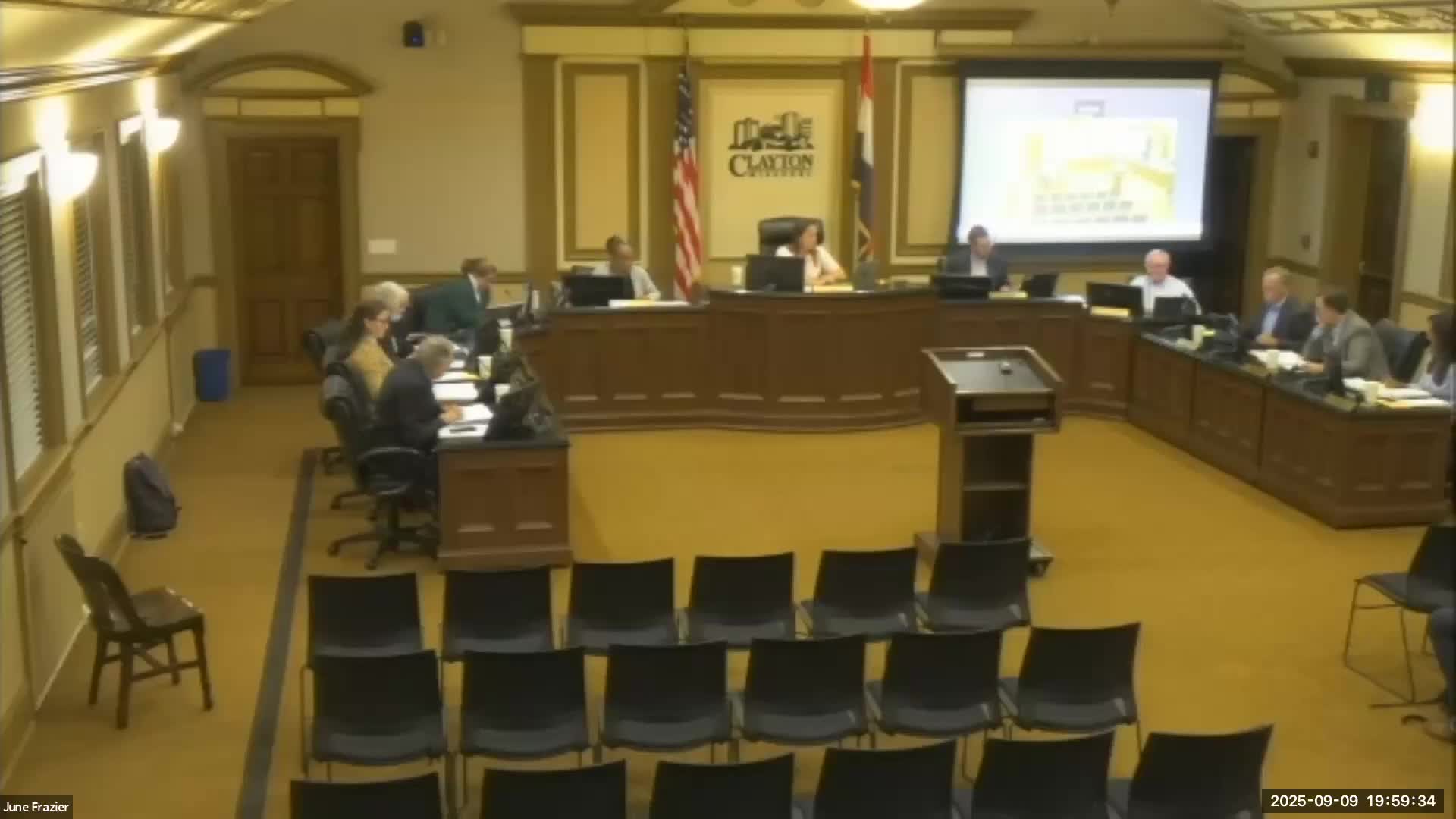
Clayton corrects ordinance to restore intended parking rules near St. Michael and St. George church
